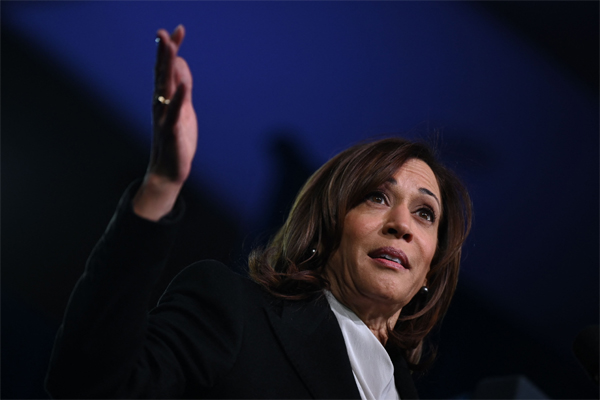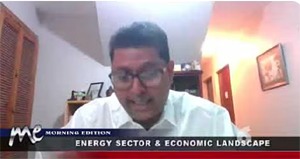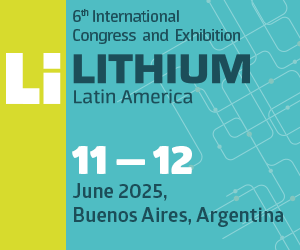
By Susanne Ramírez de Arellano
Vice President Kamala Harris will visit Puerto Rico Friday to monitor the use of recovery funds and assure Puerto Ricans that although natural disasters devastated the world’s oldest colony more than six years ago and the dispersal of federal funds has been painfully slow, she and President Joe Biden are committed to the island’s “recovery and renewal.”
But that is a farce and political theater to Puerto Ricans like me living on the island.
Harris, who last visited in 2017 as a senator, will make her first trip to the archipelago since being sworn in. The timing of it — March 22nd, the day Puerto Rico marks the abolition of slavery — doesn’t make for great optics.
It’s a key detail that the Biden administration should have been mindful of, but in many ways, it says the quiet part out loud: The purpose of Harris’ visit is not to please Puerto Ricans on the island but to use them to pull in electoral gold — the 5.8 million Boricuas living on the mainland.
“This is a critical election year, and Democrats know that Puerto Rican votes will matter in swing states like Pennsylvania, Wisconsin, Ohio, Georgia, and, of course, Florida,” said Julio Ricardo Varela, MSNBC columnist and founder of news site Latino Rebels.
Democrats need Latinos to win in November. A Pew Research Center report estimated that 36.2 million Latinos, the nation’s second-largest voting bloc, are eligible to vote this year. However, according to a recent New York Times and Siena College poll, Biden is losing ground with Latinos, while former president Donald Trump is trending upward with them.
Biden’s reelection campaign is pushing a multifaceted strategy that paints Trump as “openly despising Latinos.” What better place to drive the point home than Puerto Rico, an island he allegedly called “dirty and poor” and wished to swap for Greenland?
After landing at Luis Munoz Marin airport, Harris will promote Biden’s Investing in America agenda, which includes the American Recovery Plan, the Bipartisan Infrastructure Act, and the Inflation Reduction Act, among others, as “delivering results,” according to the vice president’s office.
She will probably dance around the elephant in the room: According to a February federal audit, only 8% of the $23 billion earmarked for Puerto Rico’s recovery has been used. In addition, Washington has done little to police American tax evaders and crypto bros living on the island.
Those facts would get in the way of wooing the Boricua diaspora.
“The president has an urgency to communicate that [the administration] cares,” says former Puerto Rico Governor Anibal Acevedo Vila. “If he can’t tell them ‘Here are the results,’ at least he can say ‘I feel your pain,’ to quote Bill Clinton.”
There is no shortage of pain for the Biden administration to feel: Hurricanes Irma and María devastated the island in 2017 and left almost 3,000 people dead and damages of up to $90 billion. Earthquakes in 2019 and 2020 compounded the hurt.
The impact has been lasting. Puerto Rico has suffered the excesses of gentrification, the displacement of Puerto Ricans through Act 22 (now 60), an ongoing fiscal and economic crisis, daily power outages, an imposed budgetary control board, and the collapse of the health and education systems.
Much of it can be filed under disaster capitalism, a term coined by author Naomi Klein to describe how countries and cities are exploited after a disaster.
However, it’s not only the outsiders who are to blame. Varela emphasized the responsibility of the island’s government: “Solely blaming federal oversight at this point doesn’t paint the entire picture. Locally, Puerto Rico’s leaders continue to play politics that have hurt the most vulnerable communities. At some point, local control means local control.”
Governor Pedro Pierluisi is also a part of the problem, as he ties himself in knots to push a narrative not rooted in reality: Puerto Rico is doing great; the people here are thriving; come and invest.
How can that be when only a pittance of the recovery funds has been spent? The situation indicates that Washington (and local politicians) have little, if any, commitment to helping Puerto Rico.
Of course, that messaging doesn’t win elections. Talks of recovery go over better with a crowd.
If Puerto Ricans needed further proof of this, First Lady Jill Biden’s blink-and-you-miss-it visit to Fort Buchanan to barbecue with military families should do it. Four days before Harris’ scheduled arrival, Biden delivered the same message of commitment that her husband has been marketing.
However, if Harris is seeking proof of how the island’s “renewal” is going, all she has to do is walk the streets of Old San Juan. She will find rampant gentrification pushing Puerto Ricans out of their homes and endangering environmentally precious land, a deteriorating infrastructure and a fed-up population.
Many I spoke to either don’t know she is coming (if they even know who Harris is) or simply don’t care. A young attendant at a local shop best expressed the general feeling about the vice president’s visit: “¿ Pa’que? (What for?)”
_______________________________________
Susanne Ramirez de Arellano is a freelance writer. She is a grantee of the International Woman’s Media Foundation and the former news director of Channel 11-Univision in Puerto Rico. EnergiesNet.com does not necessarily share these views.
Editor’s Note: This article was originally published by Bloomberg, on March 20 2024. All comments posted and published on EnergiesNet or Petroleumworld, do not reflect either for or against the opinion expressed in the comment as an endorsement of EnergiesNet or Petroleumworld.
Use Notice: This site contains copyrighted material the use of which has not always been specifically authorized by the copyright owner. We are making such material available in our efforts to advance understanding of issues of environmental and humanitarian significance. We believe this constitutes a ‘fair use’ of any such copyrighted material as provided for in section 107 of the US Copyright Law. In accordance with Title 17 U.S.C. Section 107. For more information go to: http://www.law.cornell.edu/uscode/17/107.shtml.
EnergiesNet.com 03 20 2024













